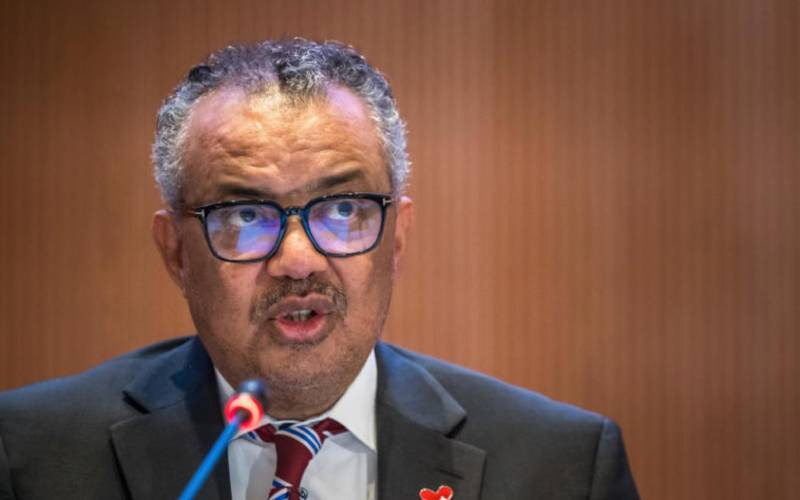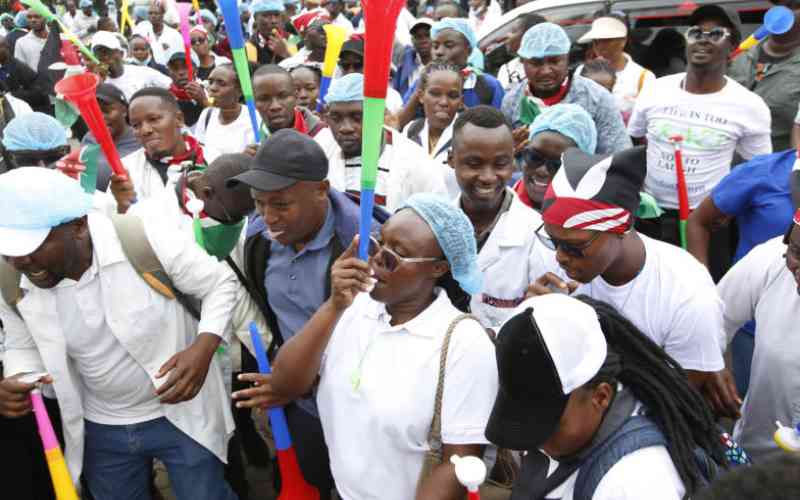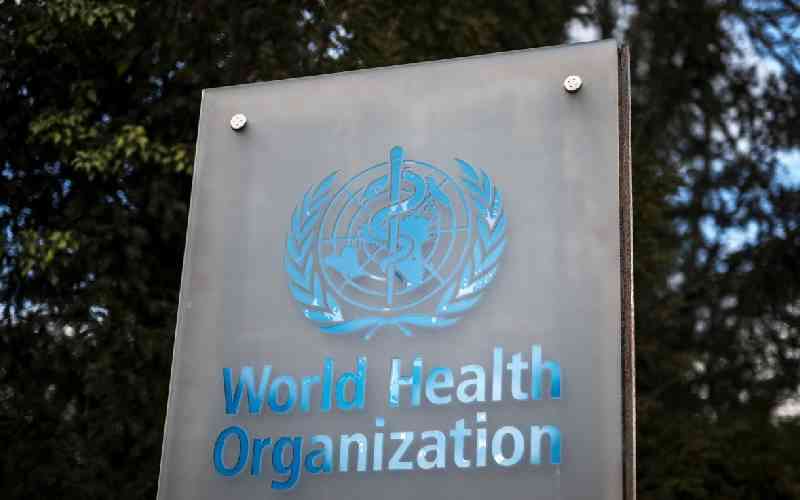
Kenya is likely to lose gains made in the fight against Tuberculosis (TB), a leading infectious disease, following an acute shortage of drugs.
According to sources, the nationwide shortage has been experienced in the past six months.
Evelyn Kibuchi, Head of Stop TB Partnership, said the shortage risks more new infections as newly diagnosed patients are not put on treatment.
Kibuchi said the Kenya Medical Supplies Authority (KEMSA) supplied 7,000 packs of TB drugs last week on Friday across the country, equivalent to treating 7,000 patients, a supply that is not enough.
With the shortage, patients are forced to share drugs, with some defaulting risking the development of multi-drug resistant TB,
"Facilities across the country are getting fewer packs as compared to the number of patients on medication. Any new patients testing for TB is asked to wait, an issue likely to cause more infections because they continue to interact with masses, yet TB is highly infectious," said Kibuchi.
Due to the biting shortage, hospitals across the country have been re-distributing available stock, whereas counties have been distributing to those with high-burden, drugs that have since run out of stock.
Ms Kibuchi added, "TB programme has been re-distributing available stock, but with the shortage, patients are told to go back, or asked to open their packs and share as they wait for a new batch," added Kibuchi.
- Four dead, 34 hospitalised as cholera spreads in Narok county
- TB program officers protest over 16 months' salary arrears, employment terms
- State steps up fight as pneumonia kills thousands of children annually
- Why the deadly typhoid outbreak in Sudan could spill over to Kenya
Keep Reading
Dr Andrew Mulwa, the KEMSA CEO, admitted that the country has been having a shortage of TB drugs, but have since been supplied.
In an interview with The Standard, Mulwa said Kemsa received 7,000 packs last week, and 14,000 packs are expected at the end of the week.
"In August, we ran short of TB patients' drugs because of a change in the global supply chain. We had a supplier who was to supply 8,000 packs but he did not supply because of change in global market supply chains," said Dr Mulwa.
The CEO noted that for smooth supply, the country will be receiving at least 14,00 packs every week.
"There has been a scare, but we have managed by distributing and re-distributing available ones," added the CEO.
Ms Kibuchi said failure to supply the drugs to patients on treatment risks more deaths.
TB is among Kenya's top three killer diseases, alongside malaria and HIV/AIDS.
Kenya is ranked fourth in the African continent with the highest TB burden after South Africa, Nigeria, and Ethiopia.
In 2020, Kenya recorded a total of 72,943 TB cases, 5,663 of these were paediatric cases translating to eight out of every ten infections.
According to Kenya Demographic Survey (KDHS) 2022 report, 12,000 people are infected with TB every year, while 32,000 die of TB annually.
In 2019, Kenya reported 31,000 TB deaths, a number that significantly reduced to 21,000 in 2022.
A drop in deaths made Kenya to be ranked among the top seven countries that have managed to meet Sustainable Development Goals (SDGs) 2020/22 TB targets.
TB is a communicable disease that spreads through the air when an infected person coughs, sneezes, speaks, laughs, or sings, and it spreads through coughs, sneezes, speaking, and laughs
The disease presents with feelings of sickness or weakness, weight loss, fever, and night sweats. Coughing and chest pain
The disease is characterised by high morbidity and mortality in Kenya.
The Ministry of Health (MoH) through the National Tuberculosis, Leprosy and Lung Program (NTLD-P) has made significant progress toward the prevention and treatment of TB, towards ending the TB epidemic by 2030, according to health targets of the United Nations Sustainable Development Goals (SDGs).\
Kenya is one of seven countries globally that have made progress in the fight against TB.
To avoid losing gains made in the fight against the disease, Kibuchi asked the government to develop a sustainable supply of TB drugs, an adequate buffer stock.
"At no point should we have an interruption supply of TB drugs. No patient should be diagnosed and miss drugs, or default because of lack of supply," said Kibuchi.
She added, "TB should be treated like an emergency to avoid deaths".
Further, the head of STOP TB asked the government to allocate more funding to the TB programme.
Alongside malaria and HIV/AIDS, TB heavily depends on donor support and funding which is to come to an end in 2027 as donors pull out after Kenya moved from a low-income to a middle-income country.
Kenya, in collaboration with partners, has invested in critical components of TB care and management.
Among the progress include expansion and strengthening access to the TB diagnostic network and services through the introduction of high-end diagnostic equipment.
The country has also introduced Digital Adherence Technology in support of drug adherence and providing preventative treatment for people at high risk of contracting TB.
Further, Kenya has made progress in the development, rollout, and sustenance of awareness campaigns to create demand for TB services and treatment completion.
Other achievements include strengthening the public-private mix offering free diagnosis and treatment to all our TB clients, and providing financial and technical support to healthcare providers, establishing a robust national TB surveillance system.
 The Standard Group Plc is a multi-media organization with investments in media
platforms spanning newspaper print
operations, television, radio broadcasting, digital and online services. The
Standard Group is recognized as a
leading multi-media house in Kenya with a key influence in matters of national
and international interest.
The Standard Group Plc is a multi-media organization with investments in media
platforms spanning newspaper print
operations, television, radio broadcasting, digital and online services. The
Standard Group is recognized as a
leading multi-media house in Kenya with a key influence in matters of national
and international interest.











